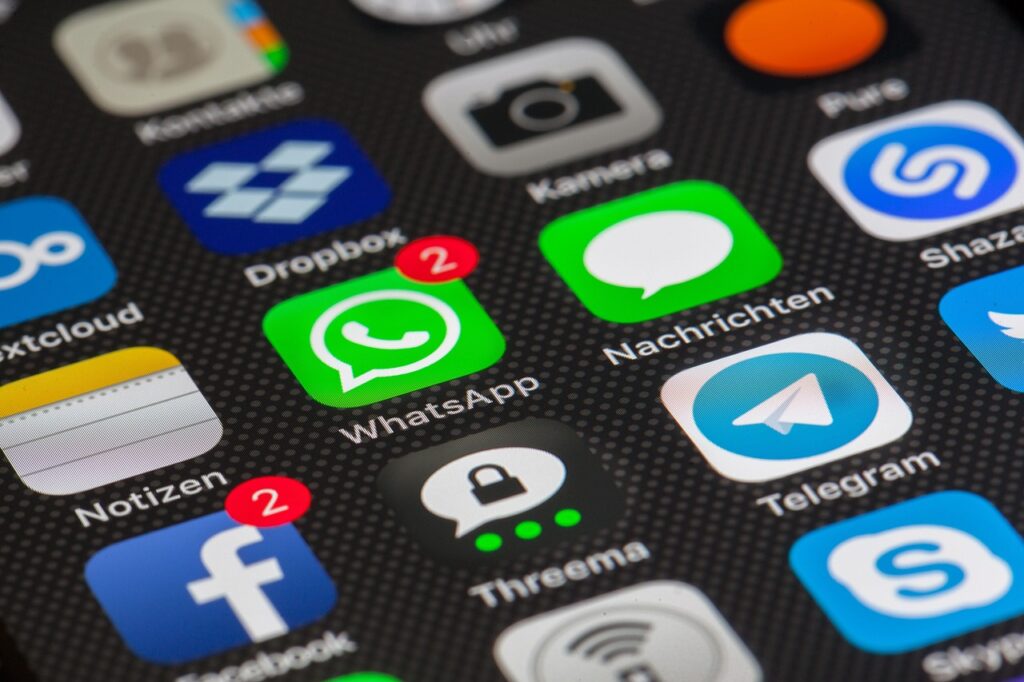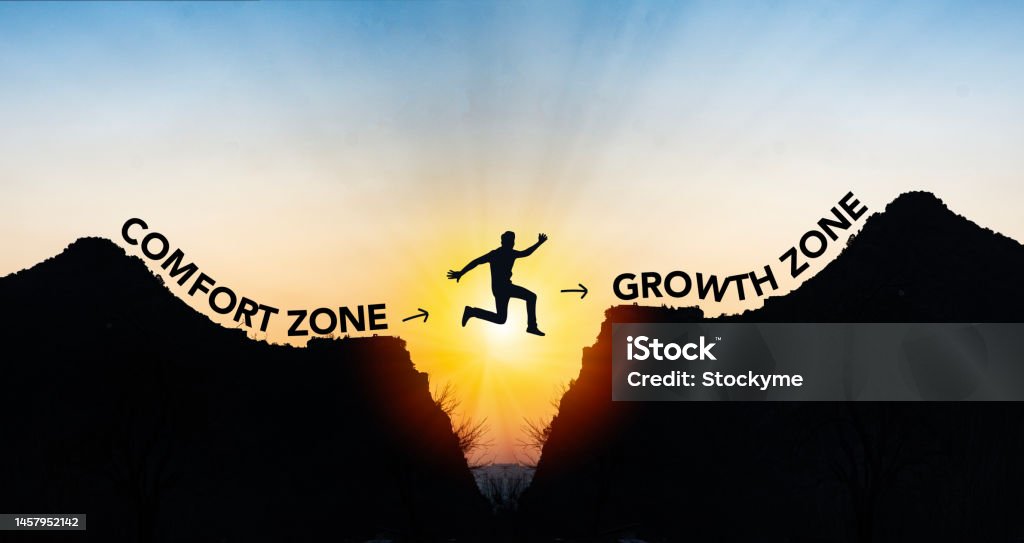Introduction
In a world full of non-stop notifications, social media updates, and constant distractions, staying focused is harder than ever. You start with big goals and a clear plan, but obstacles keep getting in your way. What if you could take control and get rid of these distractions for good? The truth is, distractions are always around, so the best thing we can do is to learn, how to overcome distractions. Unfortunately, in school, we were never taught how to stay focused. Due to this reason, most of us don’t even know about something called “distraction management”. As a result, we often struggle with low grades and feel less confident.
Focus is a key factor in whether you succeed or fail. When you focus, you can work with less effort. If you learn to control your mind, you can achieve more with less work. This is one of the best way to transform your mindset and life. The human mind works based on what you put into it. So, it’s up to you to train your brain to reach your goals. Our minds generate millions of thoughts every day. To stay motivated and focused on your dreams, you need to filter out negative thoughts and keep only those that make you feel motivated and energized.
In this article, we’ll explore what’s holding you back, understand the nature of distractions, and provide proven strategies for overcoming them. It’s time to achieve the productivity you’ve always dreamed of.

What’s Really Holding You Back?
Before you can overcome distractions, it’s essential to understand what’s causing them. Here are some of the most common barriers:
- Digital Overload: Social media, emails, and notifications often distract you from your work. Even a quick look at your phone can interrupt your focus. Scrolling through social media can turn into procrastination, keeping you away from reaching your goals. Switching between apps and messages may feel productive, but it actually slows you down. Studies show it can reduce efficiency by up to 40%.
- Lack of Clear Goals: When your goals aren’t clear, it’s easy to lose focus. If you don’t know what you want, it’s hard to know what’s important. You might waste time on unimportant things instead of what really matters. Clear goals help you see your progress because without them, it’s hard to tell if you’re moving forward, or falling behind. Research by Locke and Latham (2002) on Goal-Setting Theory confirms that specific, challenging goals significantly improve motivation, focus, and performance compared to vague or unclear intentions.
- Poor Time Management: Poor time management creates chaos and makes it hard to focus. You might miss opportunities because you’re always catching up on unfinished tasks. If you don’t manage your time well, work can spill into your personal life and ultimately hurting your health and relationships. Without planning, you may end up rushing to finish things last minute, adding unnecessary stress. Research published in the Journal of Business and Psychology (Claessens et al., 2007) shows that effective time management is strongly linked to higher productivity, reduced stress, and better overall life satisfaction.
- Mental Clutter: Worry, anxiety, and overthinking can distract you from your work. Think about which of these affect you the most. A busy mind wastes energy on unimportant thoughts, making it harder to focus. This mental clutter can also make tasks feel overwhelming, ultimately leading to procrastination. Learn how to overcome anxiety, worry and overthinking may help you to manage mental clutter.
Understanding Distractions
Distractions generally fall into two categories:
a). Internal Distractions:
These come from within stress, anxiety, lack of motivation, or personal thoughts that interrupt your focus.
b). External Distractions:
These are environmental, phone calls, social media, background noise, or even people interrupting you.
To overcome distractions, you need strategies that address both types effectively.
Proven Strategies to Overcome Distractions
1. Time-Blocking
Time-blocking is a productivity method where you schedule specific time slots for different tasks. Instead of using a long to-do list, you decide exactly when you will work on each task. This helps you stay focused because you already know what to work on next. It also reduces distractions since you can turn off notifications during each block.
The set time for each block acts like a mini-deadline, pushing you to work efficiently . Staying focused during each block builds momentum and make it easier to move on to the next task. So, you can review how well you followed your schedule and spot any distractions to improve your planning.
2. Deep Work Sessions:
Deep work sessions are focused periods where you work intensely on challenging tasks without any interruptions. This idea, made popular by Cal Newport in his book Deep Work: Rules for Focused Success in a Distracted World which actually highlights the power of undivided attention for producing high-quality work. Setting clear goals for each session helps you stay focused because you know exactly what you need to achieve.
In addition, practicing deep work regularly improves your ability to concentrate for longer periods, making distractions less tempting. Since each session is time-limited (like 90 minutes), it feels manageable which helps you stay focused. When you’re fully immersed, you’re less likely to multitask. This deep concentration allows you to get more done in less time.
3. Digital Detox:
A Digital Detox involves intentionally disconnecting from digital devices like smartphones and social media, for a set period of time. The goal is to reduce digital overload and regain focus. Apps and notifications are designed to trigger dopamine releases, creating addictive loops. A digital detox disrupts this cycle and make it easier to focus on more meaningful tasks. Moreover, Constant exposure to news feeds and updates overloads your brain with trivial information. Ultimately, Stepping back clears mental clutter, allowing deeper focus on important activities.

Studies show that frequent smartphone use reduces attention spans. A detox helps rebuild your ability to concentrate for longer periods. Blue light from screens disrupts sleep cycles, leading to poor concentration. A digital detox, especially before bedtime improves sleep quality, which enhances focus the next day. Time that would have been lost to mindless scrolling is redirected toward focused. This reclaimed time is perfect for deep work, reading, or creative pursuits.
4. Mindfulness Techniques:
Mindfulness techniques involve training your mind to be fully present in the moment, aware of your thoughts and surroundings without judgement. Practicing mindfulness helps overcome distractions by enhancing focus. In addition, meditation trains your brain to bring wandering thoughts back to the present. Over time, you build the mental muscle to notice when your mind drifts and redirect it back to the task. Moreover, mindfulness helps you observe your thoughts objectively, allowing you to recognize distractions as they arise. Instead of getting caught up in them, you can gently let them go and maintain focus on your work.
When you practice mindfulness, distractions (like a notification or background noise) become less triggering. You acknowledge their presence without reacting to them. Mindfulness reduces anxiety and stress, which are major sources of distraction. When you feel calm and centered, it’s easier to maintain concentration. Studies show that mindfulness enhances working memory and decision-making skills. A clearer mind is less prone to distractions and better at maintaining task-related thoughts.
5. Set Clear, Achievable Goals:
Define what success looks like for each task. Break larger projects into smaller and manageable steps. Setting clear goals is a powerful way to overcome distraction because it provides direction and clarity. When goals are well-defined, you know exactly what you need to accomplish. This reduces the temptation to get sidetracked by less important tasks.
With a clear target, it’s easier to prioritize tasks and eliminate irrelevant distractions. You can confidently say “no” to things that don’t align with your goals. Achieving small goals creates momentum and reinforcing focused behavior. This positive cycle makes it easier to resist distractions as you move forward. When goals are too big or unclear, it’s easy to feel stressed and put things off. Breaking them into small and clear steps makes it simpler to stay focused and get things done, one step at a time.
6. Create a Distraction-Free Environment:
Optimize your workspace, use noise-canceling headphones, and keep only what you need within reach. Creating a Distraction-Free Environment is a practical strategy to enhance focus and productivity. This practice eliminates external triggers and optimize your workspace to minimize interruptions. A cluttered workspace creates mental noise and makes it harder to concentrate. Keeping your environment clean and organized limits unnecessary visual stimuli and allow you to focus on your main task. A well-organized, distraction-free workspace allow you to think more clearly. This mental clarity helps you maintain flow and work more efficiently.
Finding a quiet place to work helps you stay focused for longer. If you use the same space regularly, your brain starts to associate it with getting things done. Removing extra gadgets or screens also cuts down on distractions, making it easier to stay on task. A simple and organized workspace lets you think more clearly and work more efficiently.
Conclusion
Our time and productivity and potential suffer from the silent theft of distractions which function as more than simple interruptions. The fast digital environment of today makes it simple for people to get sidetracked by continuous scrolling and endless notifications and mental disorganization. The positive news is that you can break free from this situation. Time-blocking combined with deep work and digital detox and mindfulness and goal-setting and environment design will help you regain control of your attention.
The practice of focusing your attention strengthens your mental ability to concentrate because it functions as a muscle that grows with consistent exercise. Daily habits which include notification silencing and brief mindfulness practice and task segmentation will produce substantial outcomes through their accumulation over time. Your dedication to focus instead of distractions leads you toward your targets while strengthening your self-assurance and revealing your highest potential.
The ability to control distractions determines the path your future will take. The ability to control your focus during the present day will help you develop the necessary clarity and energy and discipline to reach success in the future.
REFERENCES
https://scientificorigin.com/how-to-overcome-procrastination-and-get-rid-of-distractions
https://www.nimblework.com/blog/avoid-work-distractions/
https://hbr.org/2025/02/7-habits-to-stay-focused-in-a-world-full-of-distractions
FAQs
How do I reduce distractions?
To stay focused, limit your day to 2-3 important tasks. It might seem unproductive, but this simplicity can be very effective.
How often do people get distracted?
On average, people get distracted every 11 minutes, check their phones 144 times a day, and switch tasks at work every 3 minutes. Even worse, it takes 23 minutes to refocus after each distraction.



Thank you for your sharing. I am worried that I lack creative ideas. It is your article that makes me full of hope. Thank you. But, I have a question, can you help me?